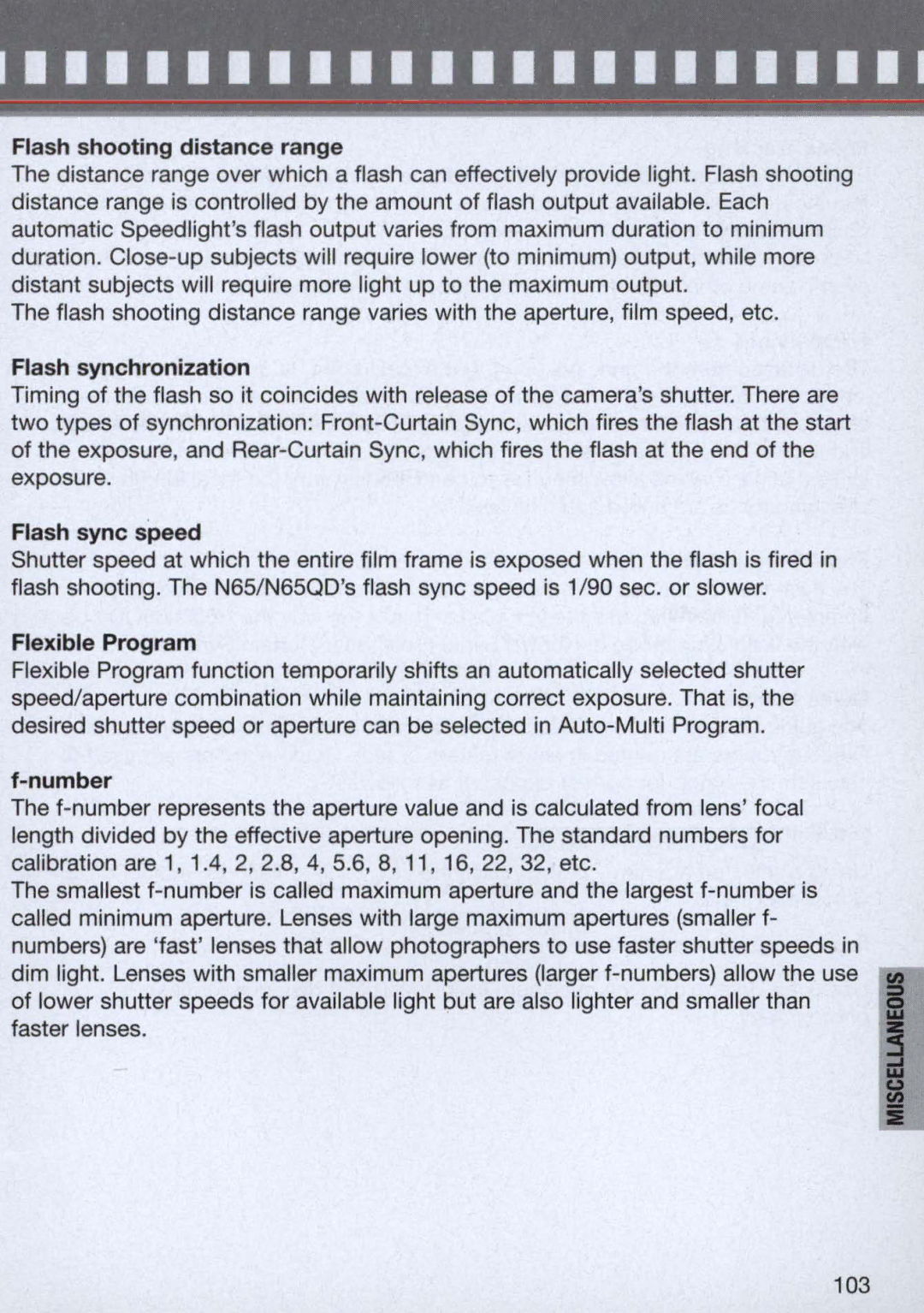
••••••••••••••••••••••
Flash shooting distance range
The distance range over which a flash can effectively provide light. Flash shooting distance range is controlled by the amount of flash output available. Each automatic Speed light's flash output varies from maximum duration to minimum duration .
The flash shooting distance range varies with the aperture, film speed, etc.
Flash synchronization
Timing of the flash so it coincides with release of the camera's shutter. There are two types of synchronization:
Flash sync speed
Shutter speed at which the entire film frame is exposed when the flash is fired in flash shooting . The N65/N65QD's flash sync speed is 1/90 sec. or slower.
Flexible Program
Flexible Program function temporarily shifts an automatically selected shutter speed/aperture combination while maintaining correct exposure. That is, the desired shutter speed or aperture can be selected in
f-number
The
The smallest
I!
iii
103
